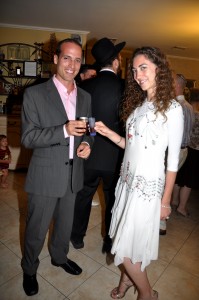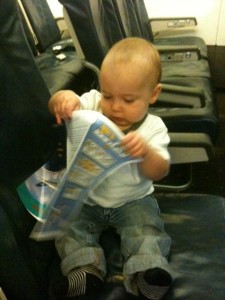Parshas Mattos-Masei: Leadership is for Others, Not the Self
As I’m traveling in North America at the moment, a lot of my friends and family are asking me if I will ever return to live here. I cannot foresee the future, but I certainly hope not. Canada is, in my mind, perpetually frozen (I’ve been here in May when it’s snowed, shivered my way through Sukkot in a heavy coat, this year it snowed in June, it’s now July and it’s sweater weather even for the locals, and when we came in August for Sheva Brachot it was also quite cold – it just never seems to warm up here!) and I don’t handle cold weather particularly well.
So, many people ask me, “well, why don’t you move back to Miami?” Miami is warm enough, I’ll give it that. But the US is not where I want to live. And when people ask me why, I point to the politicians and the politics there. I won’t get into my exact reasons, but I think it is easier to tolerate corruption in the government in a place where I either don’t know about it or don’t feel so strongly the effects of it. In the US, where I went years without health care in spite of working and paying taxes, where I spent hundreds of thousands of dollars for an education that got me a job at a barely living wage, where I worked and worked but felt myself getting very little back in return for my investment of time and health, I feel the punch of governmental corruption as it hits me personally and very hard directly in the gut.
Of course, power seems to corrupt everywhere in the world these days. At least in the third world, I know what I’m dealing with. In the third world, I’m empowered, in a way. I know the rules of the game. Traveling in Romania more than a decade ago, I knew I could bribe the doctors to give me better medicine and treatment, I knew I could bribe postal workers to ensure my package would arrive on time. In India, I know I can bribe the police. Is it right? Maybe not, but corruption I can control seems to me to be something I can more easily swallow. Maybe I’ve become jaded in my old age!
Now that I’m not only religious, but a leader in a community, however, I take these lessons in corruption to heart. Corruption I cannot control (like that in the US) is terrible and even corruption I can control to an extent (like in the third world) is also terrible. In fact, as they say, “power corrupts, and absolute power corrupts absolutely.” This is not the way we live our lives as Jews. This is not the way any Jewish leader should behave. Perhaps that is why Pirkei Avos (Ethics of Our Fathers) admonishes us to stay away from politics and politicians. They will teach us their ways of leadership, which are ultimately for personal gain. That is not the Jewish way.
The Jewish way of leadership is not for self-enhancement at all. Perhaps this is why so many rabbis struggle to survive – they are working to help others, to help their community – they are not working for their own personal gain. In fact, in this week’s parsha, we see that the generals and captains, upon returning from war, give all of their share of gold won in battle to the Mishkan (tabernacle) in gratitude for not a single soldier being killed. They did not go to war with a single thought of personal glory in their minds. Their every thought, worry, and care was for their soldiers.
This is how a Jewish leader must behave at all times. Judges in Jewish law have to be so careful not to accept a bribe that even holding a door open for a judge is considered a bribe! As Jews, we hold ourselves to higher standards. We must hold in our minds at all times that as Jews in positions of leadership of any kind, we must always be working for the betterment and advancement of others, not of ourselves.
Shabbat shalom!
Read more on Parshas Mattos-Masei: Paying Our Dues
Read more on Parshas Mattos: Getting Your Priorities Straight
Read more on Parshas Masei: It’s All a Matter of Perspective
Read More







